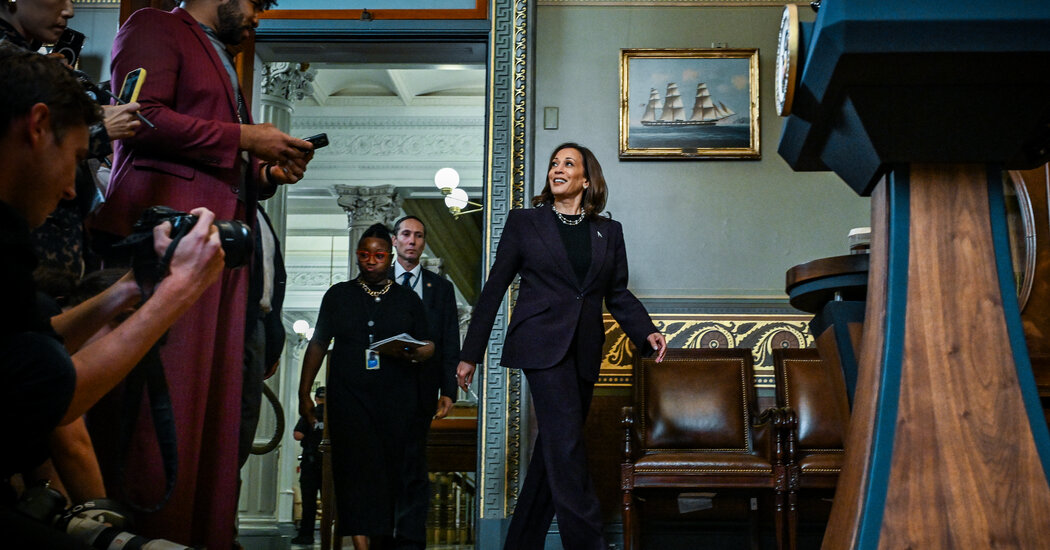Politicians have long faced racist and sexist attacks online. But Ms. Harris is being attacked on more platforms, with new technologies and in front of bigger audiences than Barack Obama and Hillary Clinton were.
The internet was spewing racist and sexist attacks long before Vice President Kamala Harris began her presidential campaign this month, including when Barack Obama and Hillary Clinton sought the job. Since the last major election, however, it has become even more noxious — and more central to American politics.
In 2008, Mr. Obama faced an ecosystem in which Facebook had millions of users, not billions, and the iPhone was just a year old. In 2016, Mrs. Clinton’s campaign monitored a handful of social media platforms, not dozens. In 2020, when Ms. Harris was Joseph R. Biden Jr.’s running mate, it was far harder to use artificial intelligence to produce the fake pornographic renderings and misleading videos that now claim to portray her.
In the week since Ms. Harris — who is Black, of Indian descent and a woman — became the presumptive Democratic presidential nominee, false narratives and conspiracy theories about her have ricocheted across the digital landscape.
Much has changed in the lead-up to 2024. Such claims are now turbocharged, fueled by an increasingly aggressive tone of political speech endorsed by top politicians, powered by artificial intelligence and other new technologies, and let loose across a far more fragmented online landscape crowded with unmoderated platforms.
“The political arena has been sexist and racist for a really long time — what’s changed is the media ecosystem in which that problematic rhetoric grows,” said Meg Heckman, an associate professor of journalism at Northeastern University. “It’s almost like there are all of these parallel media universes, so we are not all operating on a shared set of facts.”
The attacks against Ms. Harris reflect the steady coarsening of political debate, a movement of explicit vulgarity and bigotry out from the shadows and into the open. Experts fear the shift could erode society by discouraging potential candidates from running for office and turning constituents off the democratic process.
